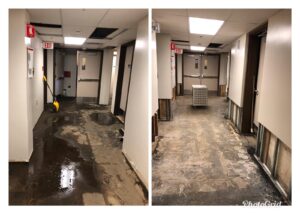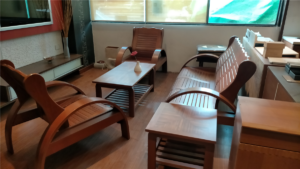Strategies for Preventing Relapse
Preventing relapse is a vital part of the recovery journey for individuals overcoming addiction. While achieving sobriety is a significant milestone, maintaining it requires ongoing effort and strategic planning. Relapse can be disheartening, but it is not a failure—rather, it serves as a reminder of the need for continuous growth and vigilance. With the right strategies, individuals can strengthen their resolve and build a sustainable recovery. Here are some effective strategies for preventing relapse, with insights into how the best nasha mukti kendra in Delhi can support this process.
Understanding Relapse and Its Triggers
Relapse often begins long before an individual returns to substance use. It typically occurs in stages: emotional, mental, and physical relapse. Emotional relapse involves neglecting self-care and harboring negative emotions, which can lead to mental relapse—where individuals start romanticizing past substance use. Finally, physical relapse happens when the individual consumes the substance again.
To prevent relapse, it is crucial to identify and understand triggers. Common triggers include:
- Stress: High-pressure situations or unresolved emotional conflicts.
- Social Environments: Being in places or around people associated with substance use.
- Negative Emotions: Feelings of loneliness, anger, or sadness.
- Overconfidence: Believing that one can handle just “one time” without consequence.
By understanding these triggers, individuals can take proactive steps to address them before they lead to relapse.
Building a Strong Support Network
A strong support network is one of the most effective tools in preventing relapse. Friends, family, and support groups provide encouragement and accountability during challenging times. Open communication within this network allows individuals to express concerns and seek guidance when facing triggers.
Support groups like Alcoholics Anonymous (AA) or Narcotics Anonymous (NA) provide a safe space to share experiences and receive encouragement from peers who have faced similar struggles. Many of the best nasha mukti kendra in Delhi incorporate support groups into their recovery programs, offering individuals ongoing connections and resources.
Developing Healthy Coping Mechanisms
Addiction often begins as a way to cope with stress or emotional pain. In recovery, finding healthy alternatives is essential. Strategies include:
- Physical Activity: Exercise reduces stress and boosts mood through endorphin release.
- Mindfulness Practices: Techniques like meditation and yoga promote relaxation and self-awareness.
- Creative Outlets: Art, music, or writing can serve as therapeutic ways to process emotions.
- Therapy: Regular counseling sessions provide tools to manage emotions effectively.
Learning and practicing these coping mechanisms ensures that individuals have healthier responses to stressors, reducing the likelihood of turning to substances.
Establishing a Structured Routine
Chaos and unpredictability can increase the risk of relapse. Establishing a structured daily routine helps individuals maintain focus and direction in recovery. A routine should include:
- Set Wake and Sleep Times: Adequate sleep is crucial for mental health.
- Healthy Meals: Proper nutrition supports physical and emotional well-being.
- Daily Goals: Setting and achieving small, realistic goals fosters a sense of accomplishment.
- Regular Check-ins: Reflection time to assess progress and emotions.
The best nasha mukti kendra in Delhi often emphasize routine as a cornerstone of their programs, helping individuals build habits that support long-term recovery.
Avoiding High-Risk Situations
Recovery involves making significant lifestyle changes, including avoiding people, places, and activities associated with substance use. This may mean:
- Changing Social Circles: Distancing oneself from individuals who encourage substance use.
- Avoiding Certain Locations: Staying away from bars, clubs, or other triggering environments.
- Reevaluating Activities: Steering clear of situations where substance use was prevalent.
Setting boundaries is critical to protecting sobriety. It is not always easy, but it is necessary to prioritize recovery over potentially harmful social obligations.
Relapse Prevention Plans
A relapse prevention plan is a personalized guide that outlines steps to take when faced with challenges. It includes:
- Recognizing Warning Signs: Identifying behaviors or feelings that signal a risk of relapse.
- Emergency Contacts: A list of trusted individuals to reach out to in times of need.
- Coping Strategies: Specific techniques to manage cravings or stress.
- Commitment Statements: Personal affirmations to stay focused on recovery goals.
Many rehabilitation centers, including the best nasha mukti kendra in Delhi, assist individuals in crafting detailed relapse prevention plans tailored to their unique needs and challenges.
Continuing Aftercare Programs
Recovery does not end after initial treatment; it is a lifelong process. Aftercare programs provide ongoing support and resources to maintain sobriety. These programs often include:
- Regular Counseling Sessions: To address new challenges as they arise.
- Peer Support Groups: To maintain accountability and encouragement.
- Periodic Assessments: To evaluate progress and adjust strategies as needed.
The best nasha mukti kendra in Delhi offer comprehensive aftercare services, ensuring that individuals have continued guidance and support even after completing formal treatment.
Focusing on Personal Growth
Recovery is an opportunity for individuals to rediscover themselves and pursue personal growth. Setting long-term goals, learning new skills, or engaging in meaningful activities can provide a sense of purpose and fulfillment. This focus on personal development strengthens resilience and helps individuals stay committed to their sobriety journey.
Conclusion
Preventing relapse is a continuous process that requires vigilance, self-awareness, and the right support. By building a strong network, developing healthy habits, and utilizing resources such as those offered by the rehabilitation centre in delhi individuals can strengthen their recovery and reduce the risk of relapse. With the right strategies and mindset, long-term sobriety is not just a goal but an achievable reality.














Post Comment